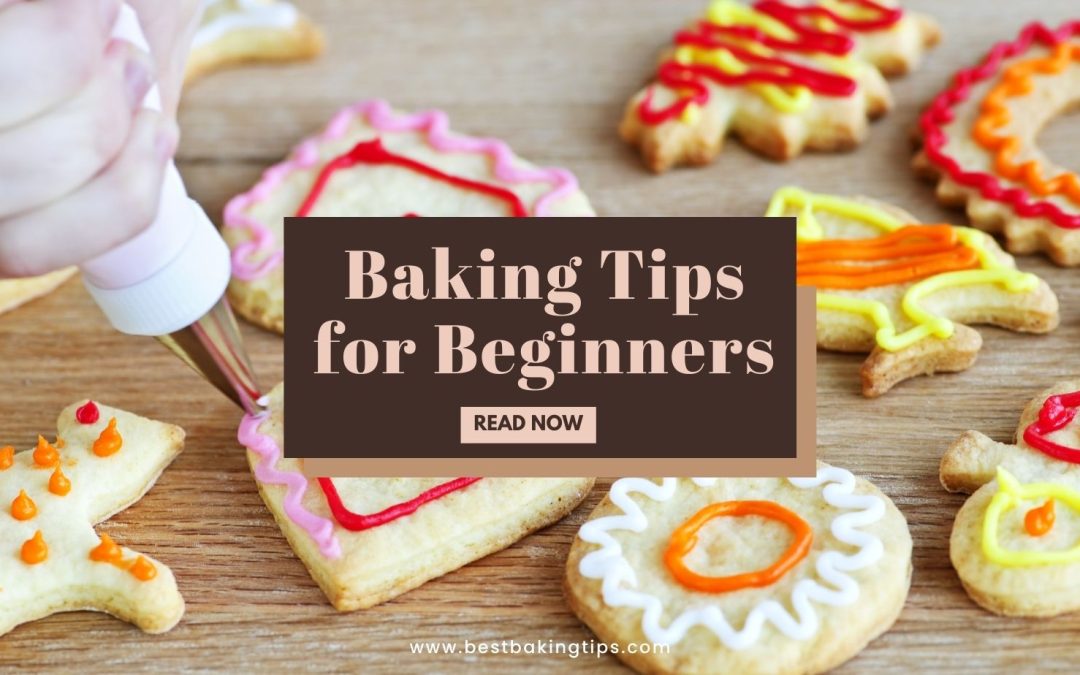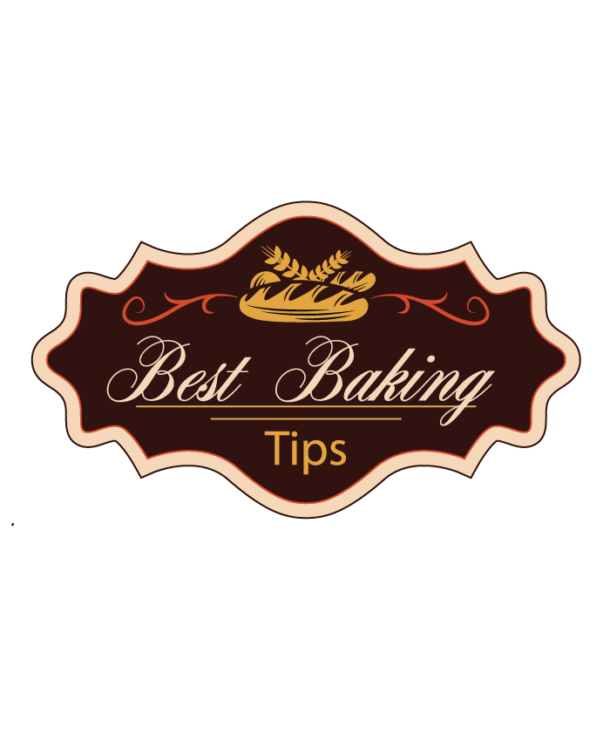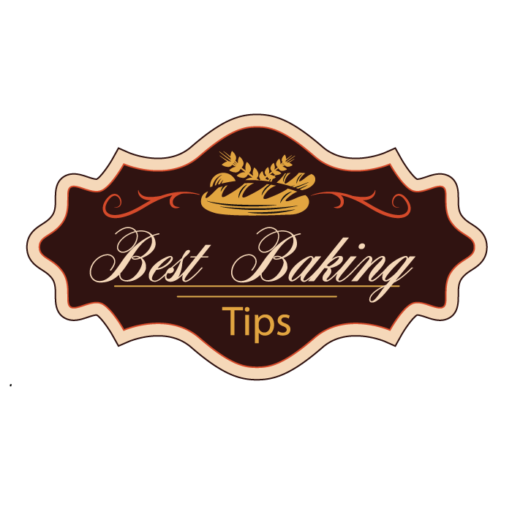==================
Affiliate Statement
Best Baking Tips is supported by our audience. When you purchase through one of our links, we may earn a small affiliate commission. As an Amazon Associate I earn from qualifying purchases. Your cost is not affected.
==================
Welcome to the world of baking! If you’re embarking on your baking journey, you’re in for a treat. There’s something genuinely magical about transforming simple ingredients into delicious baked goods. But, like any craft, baking comes with its learning curve. That’s where we come in. This article is your ultimate guide, packed with essential baking tips for beginners. It will provide a roadmap as you navigate the delightful world of baking.
Baking 101: Essential Baking Tips for Beginners
Baking, though a science, can also be an enjoyable and rewarding hobby. Think of it as an adventure where a pinch of patience and a sprinkling of love can create magic. But before we get our hands doughy, it’s essential to understand all the basics. Remember, every seasoned baker was once a beginner, too. So, if you want to bake fresh cookies or banana bread, we’ve covered you with these baking tips for beginners.
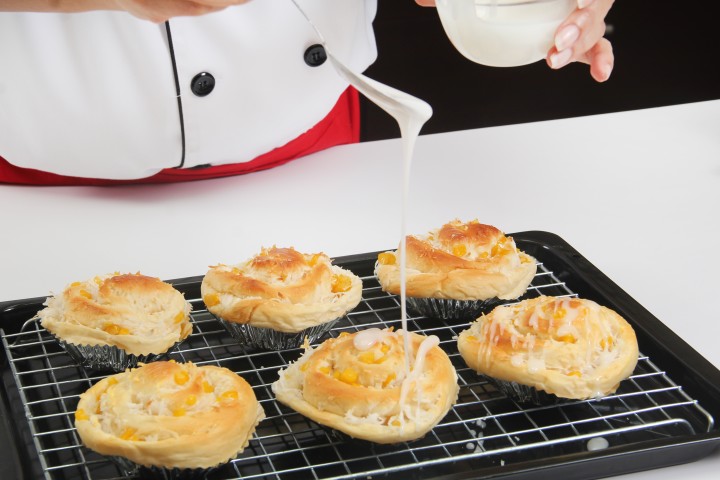
I would like you to stay tuned as we dive into the nitty-gritty of baking. You’ll learn the significance of baking powder and baking soda. Plus, I’ll teach you the secrets behind achieving a uniform texture in your baked goods. Whether your recipe calls for room-temperature ingredients or melted butter, we’re here to tell you why. So let’s preheat our ovens and embark on a baking adventure together, one beginner baking tip at a time! Ready? Set. Bake! Enjoy reading!
Let’s Start with the Basics
Ready to turn on the oven and start baking? Hold on to your whisk just yet! It’s crucial first to get a grasp on some basic baking knowledge. Here are some beginner baking tips that can help you with the science behind baking.
Baking Soda and Baking Powder
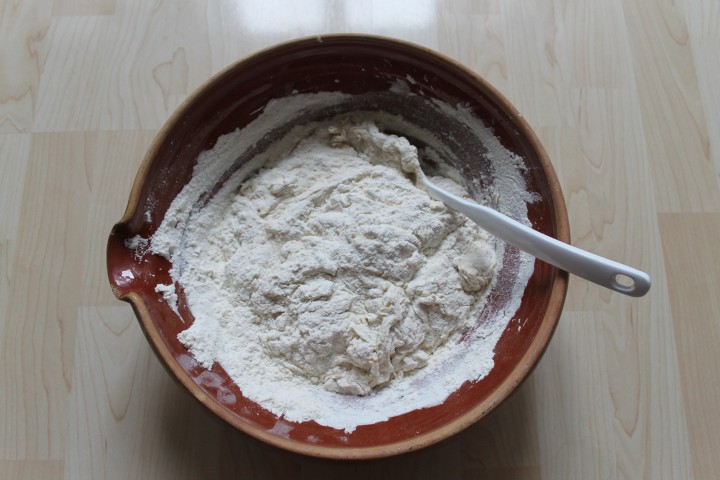
Two big names in the baking world are baking soda and baking powder. These are not interchangeable! Baking soda is a base needing an acid like brown sugar or lemon juice to react. Baking powder, however, has its built-in acid. Following your recipe exactly when it comes to these two will avoid unwanted flavors.
Accurate Measures Create Better Bakes
Baking is a precise art, and proper measurements are a crucial baking tip. Use dry measuring cups for dry ingredients. Clear liquid measuring cups for your wet ingredients. And remember some ingredients like brown sugar need to be packed. So, spoon them into your measuring cup, then level them off for an accurate measure.
The Role of Temperature in Baking
Temperature plays a vital role in the baking process. Whatever your recipe calls for, you should follow the instructions. Room-temperature ingredients blend more easily. This leads to a uniform texture in your baked goods. But you might need cold butter for some recipes, like a flaky pie crust.
Choosing the Right Baking Surface
When it comes to choosing between parchment paper or a greased metal pan, it often depends on what you’re baking. Baking cookies? Parchment paper prevents sticking and makes cleanup easier. But a well-greased metal pan can be your best friend for baking brownies or cakes.
Following the Recipe’s Instructions
Last but not least, always respect the recipe’s instructions. If it suggests using a specific type of sugar or sifting the flour, there’s a good reason for it. Swapping powdered sugar for granulation could change your cookie’s texture. And unsifted flour might result in a dense cake. There you have it! A quick crash course on the basics of baking. These baking tips for beginners can help elevate your baking skills. But we’ve just started; there’s so much more to learn! We’ll delve into baking tools in the next section, so stick around for more!
Essential Baking Tools Every Beginner Needs
-
Measuring Cups and Spoons
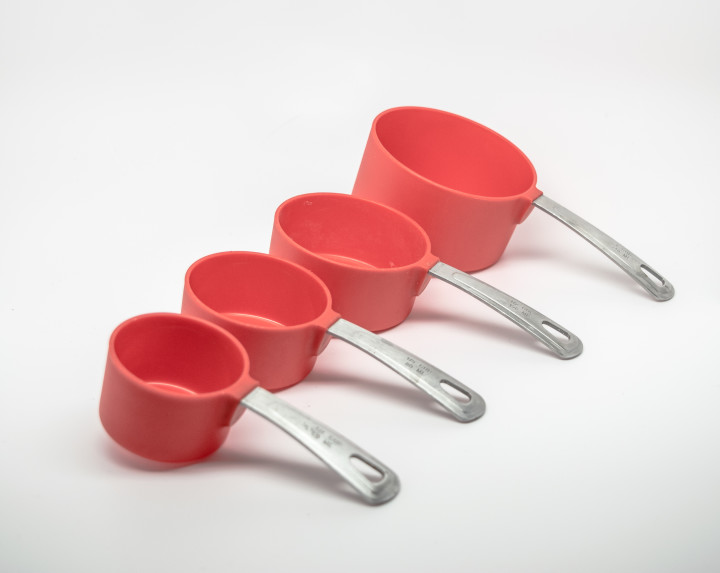
Trust me, friends, accurate measurements make a difference in baking. So, one of the most crucial baking tips I can give you is to do this. You can invest in suitable measuring cups and a clear liquid measuring cup. This way, you’re not just guessing the quantity of baking soda or baking powder your recipe calls for. Plus, with the dry measuring cup and the spoon and level method, you can ensure that your dry ingredients are measured accurately. These include flour and cocoa powder.
-
Baking Pans and Sheets
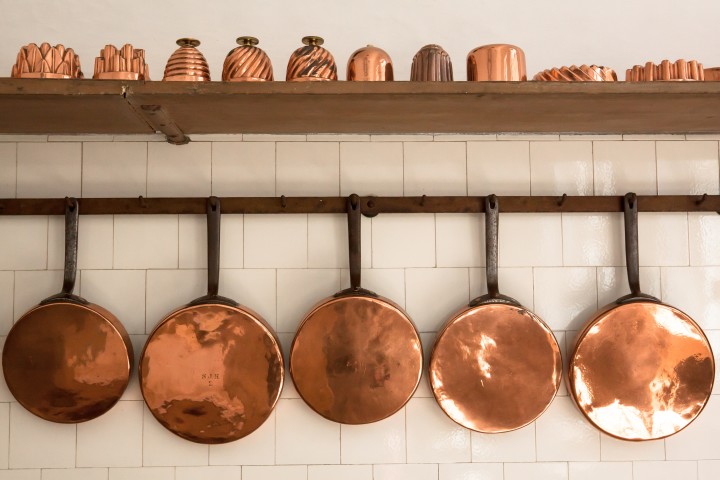
Next on our list of beginner baking tips is about baking pans. From a cake pan to a loaf pan and a baking sheet, these tools are your baked goods’ home while they’re in the oven. Choosing the right pan is crucial to the baking process. Make sure you have a variety of sizes on hand for different baking recipes.
-
Oven Thermometer
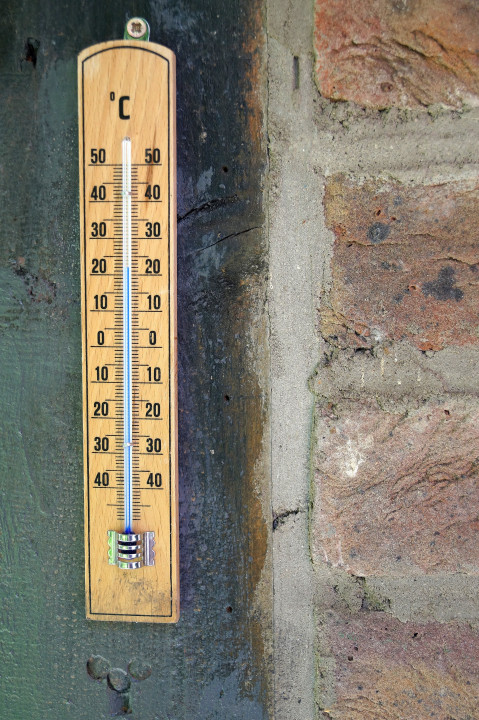
Not all ovens heat the same way. And sometimes the temperature on the oven’s dial isn’t what’s inside. An oven thermometer is a nifty tool that helps you ensure the correct baking time and temperature.
-
Mixing Bowls and Spatulas
You’ll need bowls to mix your cookie dough, cake mix, or whatever your heart desires. A set of sturdy, various-sized bowls is a must. Also, get a good spatula. It’ll help you scrape every bit of your mixture out of the bowl so none goes to waste.
-
Parchment Paper
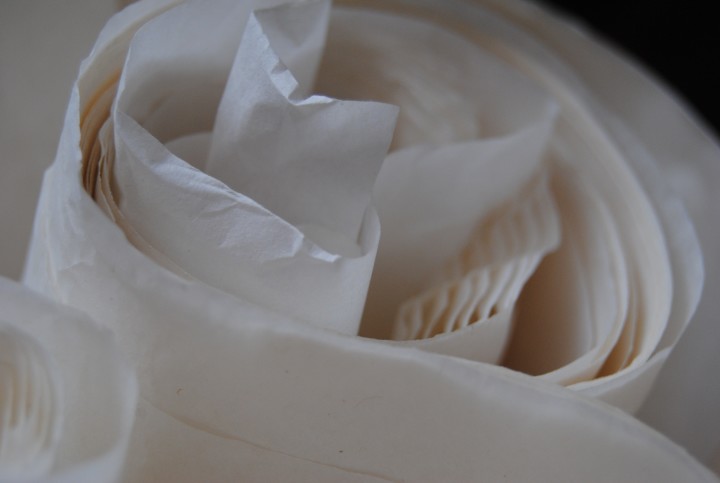
Parchment paper is like a superhero for baked goods. It prevents sticking and makes cleanup easier. Plus, it can even help cookies and cakes bake evenly. If the recipe calls for a lined baking sheet or cake pan, it usually means parchment paper is needed.
-
Additional Tools
A few other tools that can come in handy on your baking journey. You can use a butter knife for leveling. A pastry blender can be used for pie crusts, and a food processor for more complex recipes.
Remember, folks, baking is a skill; like any skill, it takes time and practice to perfect. So, keep going even if your first few attempts come out as expected. Keep these baking tips for beginners in mind. Invest in these essential tools, and you’ll be on your way to a successful baking adventure! In the next section, we’ll dive into understanding ingredients. Ready to continue your baking journey?
Key Ingredients in Baking
One of the most crucial baking tips is understanding the key ingredients in baking. These are the building blocks that transform flour and water into baked goods.
-
Flour, Sugar, and Leavening Agents
Flour is like the backbone of baking. It gives structure to your cakes, cookies, and bread. Like a house needs strong walls, your baking recipes need suitable flour. Be it all-purpose, bread, or cake flour, each has its purpose.
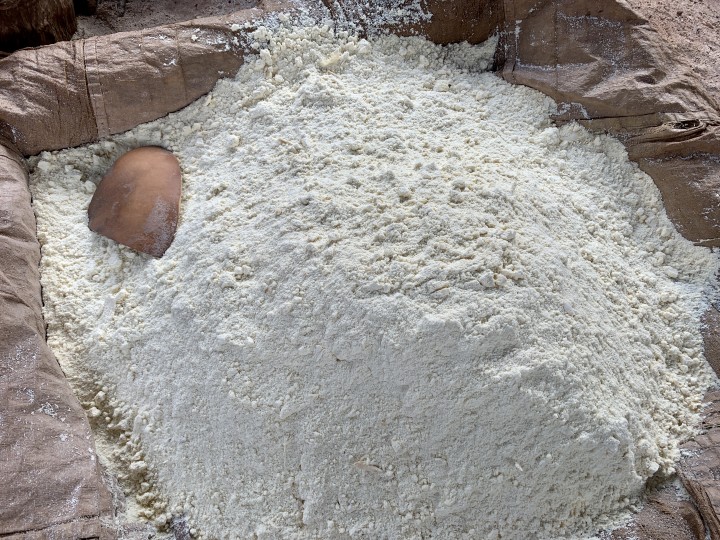
Now, let’s chat about sugar. This sweet stuff isn’t just for sweetness. In baking, brown or powdered sugar also provides texture and color to your baked goods. What about those goodies that puff up in the oven? That’s where baking soda and baking powder come into play. These leavening agents release gases during the baking process. So it creates bubbles that make your baked good rise.
-
Fats, Eggs, and Dairy
A notable baking tip for beginners: remember the importance of fats. Butter is commonly used, but oils, shortening, and even avocados work, too! So it’s responsible for the moistness and richness in baking. Now let’s remember eggs. From cakes to cookies, eggs add moisture and bind ingredients together. Room-temperature eggs work best for you, so please remember to take them out of the fridge beforehand.
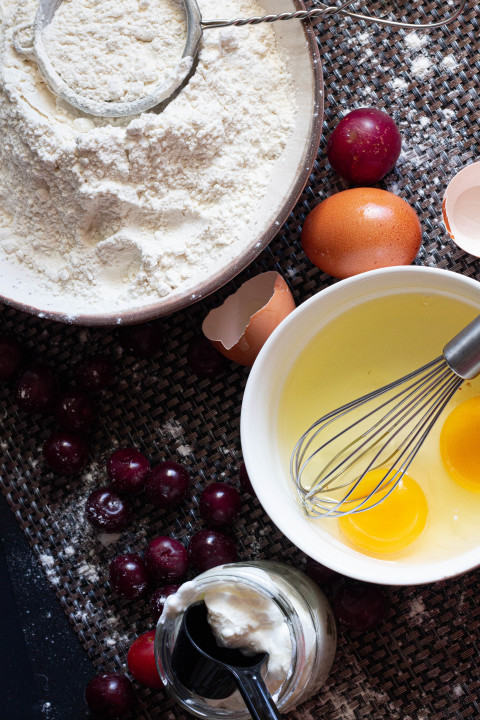
Dairy products like milk, sour cream, or buttermilk bring a rich flavor. And it creates a tender crumb in cakes and bread. They also help with the browning of baked goods.
-
Other Must-Have Ingredients
Cocoa powder and chocolate chips are there for the chocoholics. Lemon juice provides acidity and brightens up flavors. Corn syrup adds sweetness and retains moisture. Even ingredients like kosher salt enhance other flavors in your recipe. Baking is indeed a science!
Alright, that’s enough for this section. Stay tuned for more baking tips in our next segment! Remember. As you grow your baking skills, these ingredients will become your friends in your baking. Keep practicing and experimenting – that’s the true joy of baking!
Video Credit: @CuriousCatBakery
The Baking Process: Beginner Baking Tips
Baking can seem like a science experiment sometimes. Th all the measurements, temperatures, and steps involved. But don’t worry! We have some top-notch beginner baking tips to guide you through the baking process. These will turn it from a chore into an exciting journey.
-
Understanding the Role of Key Ingredients
Firstly, understanding the baking process involves knowing the function of critical ingredients. These ingredients often include baking soda and baking powder. It is responsible for the lift and fluffiness in your baked goods. Remember to use them in the right proportions, as the recipe calls, and you’ll be on your way to a delicious result.
-
The Importance of Room Temperature Ingredients
Have you ever wondered why some recipes insist on room-temperature ingredients? This is because certain ingredients like room temperature butter and eggs mix better. It leads to a uniform texture in your baked goods. Room temperature ingredients are vital. This is especially true in recipes like cookies or cake. Achieving that perfect fluffy texture is paramount.
-
Mastering Oven Temperature
Oven temperature is a crucial element to master in your baking journey. An oven thermometer can be a handy tool to ensure accurate temperature readings. Even if the oven’s temperature seems correct, sometimes ovens heat unevenly. This could result in a cake baked on one side and raw on the other—no good, right? So, remember to preheat the oven as your recipe suggests. And keep an eye on the oven window or open the oven door sparingly to maintain consistent heat.
-
The Magic of Parchment Paper
Parchment paper is another excellent tool in the baking process. It prevents your delicious creations from sticking to the baking pans. It’s like a magic carpet for your chocolate chip cookies. This ensures they slide right off the pan once cooled.
-
Getting Your Measurements Right
Your baking process also involves getting your measurements right. You can use a measuring cup for dry ingredients. But you can use a clear liquid measuring cups for wet ingredients. This spoon and level method will guarantee accuracy in your baking recipes. Remember, baking is an exact science. So measuring ingredients properly is one of the most crucial baking tips.
-
Enjoy the Journey
Finally, I’d like you to please take your time and enjoy the process. Baking isn’t just about the end product. But it is also about the joy you get from creating something delicious from scratch. With these baking tips for beginners, your baking journey should be a piece of cake! But remember, the more you bake, the better you’ll get. So, grab that apron, and let’s get baking!
Let’s Wrap Up: Baking Tips for Beginners
Wow! We’ve learned a lot together, haven’t we? We’ve covered some excellent beginner baking tips, from the tools we need to the baking process itself. Ready to start baking now? We hope so!
Always remember, everyone starts somewhere. Each cake you bake or cookie you make helps you get better. Soon, you’ll find your excellent baking tips to share!
But remember, baking isn’t just about making tasty treats. It’s also about having fun, caring for others, and seeing people enjoy what you make.
So, whether it’s cookies, pie, or banana bread you want to make, remember to be patient, practice often, and enjoy it. We hope these tips help you start your baking journey. Now, it’s time to warm up that oven and start baking. Have fun!
FAQs
How can I make sure my cakes and cookies have a smooth texture?
Here’s how to get a smooth texture in your baked goods. Mix dry ingredients like baking soda, baking powder, and cocoa powder. This is before you add them to the wet ingredients. And remember to sift your flour to get rid of lumps and make sure everything mixes evenly.
Why do my ingredients need to be at room temperature when baking?
Room-temperature ingredients mix very easily. They create a smooth and evenly combined batter. For example, cold butter doesn’t spread evenly, and hard eggs can lump your mixture.
How should I measure my ingredients?
Great question! When a recipe asks for a cup or a spoon of an ingredient, level it off. Do this, especially for ingredients like flour and sugar. For liquids, it’s best to use clear liquid measuring cups. If a recipe asks for softened butter, ensure it’s soft but not melted. And for light brown sugar, press it into the measuring cup until it holds its shape.
Why should I chill my cookie dough?
Chilling cookie dough cools the fat in it. When you bake the cookies, the cold fat takes longer to melt. This makes the cookies thicker and keeps them from spreading too much. It’s one of the vital baking tips for chunky chocolate chip cookies!
Why shouldn't I open the oven door while I'm baking?
You might be tempted to check on your baking. Opening the oven door can make the temperature drop and let in cold air. But this could cause your cake or loaf to bake unevenly or sink in the middle. If you’d like to check on your baking, you can try to use the oven window instead.
Let’s Bake Together!
Uncover the magic of baking at its finest!
Follow us on Facebook, Instagram, and Twitter for mouthwatering images, recipe reviews, and an enthusiastic community that celebrates the delight of baking.
Facebook: https://www.facebook.com/bestbakingtip
Instagram: https://www.facebook.com/bestbakingtip
Twitter: https://twitter.com/bestbakingtips
Let’s create sweet wonders together!

